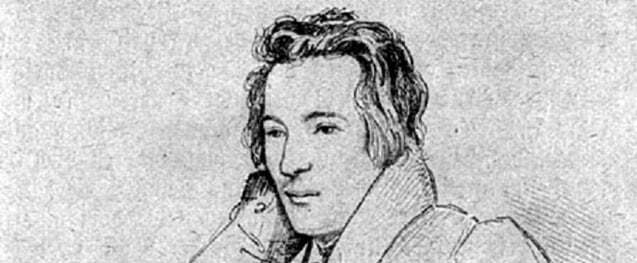
Heinrich Heine’s prophetic writing
On this day in 1797 the German poet Heinrich Heine was born in Dusseldorf. Heine’s early lyrical poetry was well received and often set to music by, amongst others, Haydn and Schubert.
Later on he moved to Paris and distanced himself from Romanticism by adding irony and satire into his poetry, sometimes mocking the sentimental-romantic awe of nature in the work of his contemporaries. In Paris, Heine became friends with Karl Marx and shared some of his views. Many years later his work was banned by the Nazis.
Some of his writing seems oddly prophetic: “A play will be performed in Germany which will make the French Revolution look like an innocent idyll.” And “Where books are burned, then in the end people will be burned too”.
Here is one of his best known poems from his lyrical period, Lorelei, translated by A S Kline:
I don’t know what it could mean,
Or why I’m so sad: I find,
A fairy-tale, from times unseen,
Won’t vanish from my mind.
The air is cool and it darkens,
And quiet flows the Rhine:
The tops of the mountains sparkle,
In evening’s after-shine.
The loveliest of maidens,
She’s wonderful, sits there,
Her golden jewels glisten,
She combs her golden hair.
She combs it with a comb of gold,
And sings a song as well:
Its strangeness too is old
And casts a powerful spell.
It grips the boatman in his boat
With a wild pang of woe:
He only looks up to the heights,
Can’t see the rocks below.
The waves end by swallowing
The boat and its boatman,
That’s what, by her singing,
The Lorelei has done.
Today I ask that I am steadfast in pursuing my goals in life and not be lured from them by the Lorelei of instant gratification.
